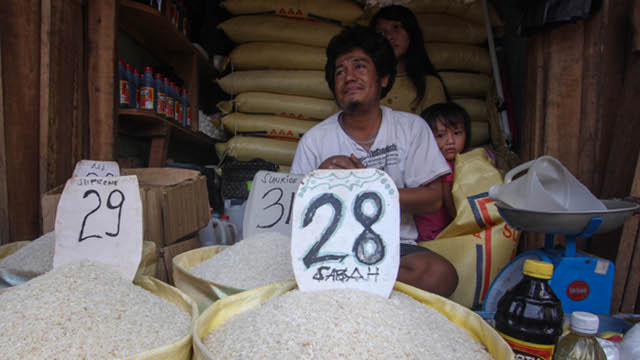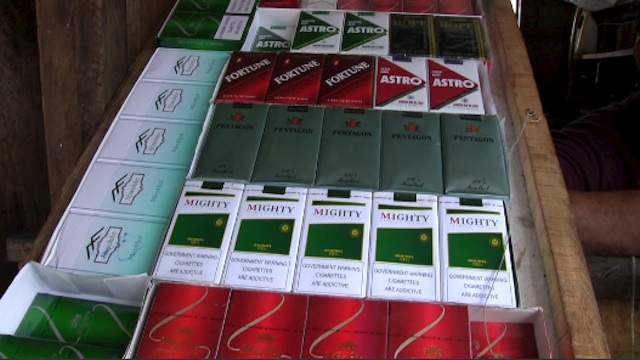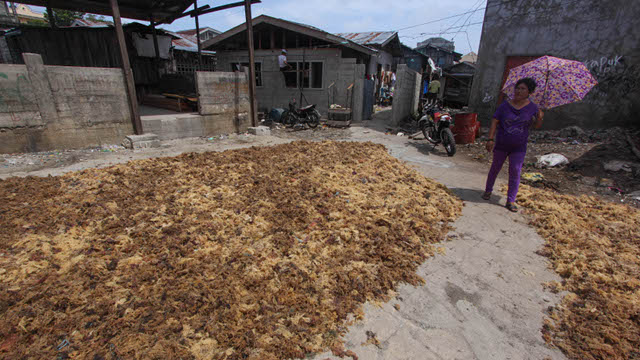SUMMARY
This is AI generated summarization, which may have errors. For context, always refer to the full article.

TAWI-TAWI, Philippines (Updated) – To residents here, Sabah is more than a neighbor. It’s the source of practically everything they buy and sell — from rice to crude oil to cigarettes.
They could freely go to Sabah without passports. Sure Malaysian authorities did random checks, but free travel and trade has characterized the relationship of both areas.
But not now.
Since armed followers of Sultan Jamalul Kiram III sailed from the town of Simunul in this province to Lahad Datu in Sabah 3 weeks ago, the backdoor has been difficult to navigate.
“Before, people here used to do their groceries in Sabah because it’s cheap and near,” Gov Sadikul Sahali told Rappler. “But now, you can’t enter anymore. The traders — we call them traders — they can’t go there anymore to buy foodstuff that they can sell here.”
“That’s why we are at a standstill now because the people here have nowhere to buy cheap goods from, unlike before. The worst that can happen now is we buy from neighboring provinces. It is more expensive and farther [than Sabah],” he added.
From the capital town of Bongao, it takes only 8 hours for traders to travel by boat to Sandakan, a town of Sabah. In contrast, it takes them about 18 hours to Western Mindanao’s biggest trading port – Zamboanga City.
Thus their main source of rice and crude oil, for example, is Sabah. Even their snacks come from Sabah.

But it’s not only proximity and accessibility which have made the residents of Tawi-Tawi support commercial products from Sabah. They say they prefer Malaysian products over those from Zamboanga or other places in the Philippines because they can be sure that the food is halal or prepared according to Muslim law.
Rising prices
In Bongao, the capital and trade center of Tawi-Tawi, the prices of basic necessities have gone up since the conflict in Lahud Datu erupted.
Before noon on Wednesday, a sack of rice was priced at P750 from the previous price of P600-P680. In the afternoon, prices rose as high as P800.
Yet traders still choose to go to Sabah to fetch their supplies. They say sourcing their goods from Zamboanga will only push prices even further.
For instance, a liter of crude oil priced at P30 in Sabah would cost P60 in Tawi-Tawi, excluding transportation costs.
Mixed emotions
Municipal Agrarian Reform Officer Edgar Puhagan said there is now mixed emotions among the people of Tawi-Tawi with regards to the conflict in Lahud Datu.
“There is wide sympathy for our Muslim brothers there. But there is also a tinge of anger because of the rising prices of commodities and people are now realizing the impact of the standoff on their lives,” Puhagan said.
Nazif Abdurahman, the mayor of Simunul — a neighboring town — said residents are concerned about what is happening to those who are now being chased by the Malaysia military in Sabah.
He took pains to say he doesn’t support the standoff instigated by Filipinos in Sabah. “Hindi kami kasama doon. Mga manggugulo yan. Magagandang tao kami, nag-ne-negosyo lang.” (We’re not involved in that. They are just troublemakers. We’re good people. We just want to do business.)

– Rappler.com
Add a comment
How does this make you feel?
There are no comments yet. Add your comment to start the conversation.